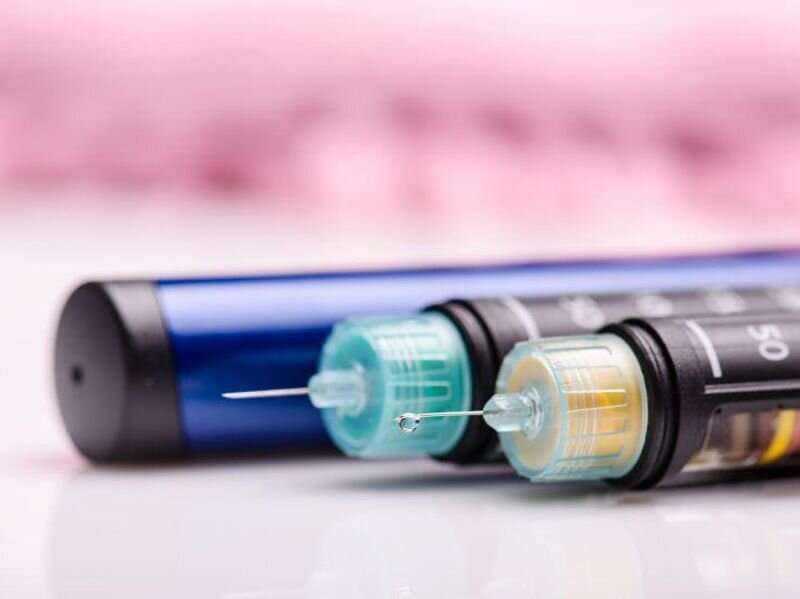Home » Health News »
Mounjaro approved for blood glucose control in type 2 diabetes

Mounjaro (tirzepatide) injection was approved as an addition to diet and exercise to improve blood glucose control in adults with type 2 diabetes, the U.S. Food and Drug Administration announced May 13.
The first-in-class medicine works by activating glucagon-like peptide-1 and glucose-dependent insulinotropic polypeptide receptors and is administered by injection under the skin once a week. The dose is adjusted as tolerated to meet blood glucose goals.
Approval was based on data from five clinical trials in which three different doses of Mounjaro (5 mg, 10 mg, and 15 mg) were evaluated as standalone therapy or in addition to other diabetes medicines. Researchers found that the hemoglobin A1c (HbA1c) levels of patients randomly assigned to receive 15 mg of Mounjaro as a standalone therapy were reduced by 1.6 percent more than levels of patients randomly assigned to placebo, and when combined with a long-acting insulin, levels were reduced by 1.5 percent more than placebo. Compared with semaglutide, insulin degludec, and insulin glargine, HbA1c levels with 15 mg of Mounjaro were reduced by 0.5, 0.9, and 1.0 percent more with 15 mg Mounjaro, respectively.
The average weight loss with 15 mg of Mounjaro was 15 pounds more compared with placebo and 23 pounds more when both were used with insulin. Compared with semaglutide, insulin degludec, and insulin glargine, average weight loss with 15 mg of Mounjaro was 12, 29, and 27 pounds more, respectively.
Commonly reported side effects of Mounjaro include nausea, vomiting, diarrhea, decreased appetite, constipation, upper abdominal discomfort, and abdominal pain. The FDA notes that Mounjaro caused thyroid C-cell tumors in rats, but it is unknown whether it causes such tumors in humans. Mounjaro is contraindicated in individuals with a personal or family history of medullary thyroid cancer and in those with multiple endocrine neoplasia syndrome type 2.
Source: Read Full Article



